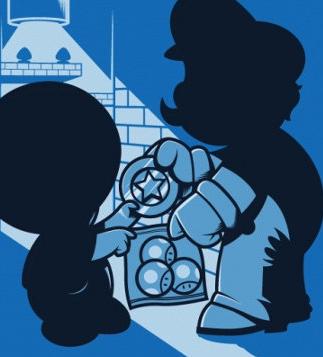 Urban Terror is a fantastic game, though I won’t blame you if you haven’t heard of it. It’s a scarcely known mod for Quake 3 Arena and is billed by its creators as a “Hollywood tactical shooter.” But however much fun I had, I could never quite master the sliding and bunny hopping, so I turned to the friend who introduced me to Urban Terror. “Matt,” I asked him, “How the hell do you wrack up so many kills?” Without saying a word, he reached into his pocket and pulled out a 2-gram bag of pot.
Urban Terror is a fantastic game, though I won’t blame you if you haven’t heard of it. It’s a scarcely known mod for Quake 3 Arena and is billed by its creators as a “Hollywood tactical shooter.” But however much fun I had, I could never quite master the sliding and bunny hopping, so I turned to the friend who introduced me to Urban Terror. “Matt,” I asked him, “How the hell do you wrack up so many kills?” Without saying a word, he reached into his pocket and pulled out a 2-gram bag of pot.
Curiously, this wasn’t the first time a friend has assured me of the accuracy-improving merits of cannabis. Growing up in France, sneaking out of class to play Counter-Strike at the local cyber café was an everyday tradition. Equally colloquial, however, was the smell of burning hash which permeated the entire building. The other truant students would explain that a joint before a tournament was almost mandatory—it cooled their nerves and put them in the appropriate headspace.
Ever since TwitchGuru’s 2006 expose on the use of nootropics and cocaine-infused cocktails at LAN tournaments, it’s been no secret that the two counter-cultures were closely tied. Even in 2001, Salon Magazine was reporting on the growing prominence of “Adults Only” LAN parties, which looked the other way when gamers lit up their pipes. Since both drugs and video games are ostensibly universal forms of recreation, it would be silly to discount an intersection.
Jump into a match of Modern Warfare 3 and it’s plainly evident that drugs have only become a more permanent feature of gaming culture. And while most would point to players who publicly spark bowls over their headset, I’m curious about the other, more creative ways in which drug use has made its way into the industry.
Quake 2 on Drugs: A Guided Tour, a study conducted by two German players, immediately comes to mind. After ingesting a litany of psychoactive and delirium-inducing drugs, the would-be researchers played Quake 2 and observed the effects on their fragging abilities. Apparently, GBH will help you take defeats in stride, a dose of acid compliments low-gravity maps and cocaine is basically “headshot fuel.”
Seemingly taking inspiration from the German duo, the Portuguese group Games on Drugs produces videos of their late night, psychotrope-addled experiences playing games like S.T.A.L.K.E.R. and Grand Theft Auto 4. The anonymous producers explain that weed “allows you to shuck off reality and slide into the virtual world more easily.”
While the amateur research is amusing, professionals have cast off the traditional neopharmaphobia and recently jumped at opportunities to properly study drugs like cannabis and MDMA. One 2011 study conducted by Groningen University shows categorically that the test subjects administered with weed performed much better in the provided games. It seems my friend Matt was on the ball.
Regardless of the scientific research, however, his trusty bong will have to wait in the car at any Urban Terror tournaments. It’s the stated position of almost every professional gaming league to suspend players who appear to be under the influence of drugs—legal or otherwise. The early 2000s saw a sharp rise in the incident of pro-gamers showing up high on cocaine, Ritalin and amphetamines. To many, the benefits of a drug that increases response time and alertness is undeniable, particularly in the context of a StarCraft tournament.
Another friend of mine and a CALi player puts it simply, “Sometimes, and especially during weekend-long LAN parties, Red Bull doesn’t do the trick. Some meet-ups require you to stay awake for 30-40 hours, and without a bump of coke, you might as well say adieu to the cash prize.”
For the time being, the Cyberathletes League and similar organizations do not intend to begin drug testing. But that decision hasn’t prevented mail-order nootropics like FPS Brain from surfacing. Replete with neurotransmitters and assorted vitamins, the capsules claim to improve all the physiological factors that make for a good gamer. Personally, I’m not sold on the idea.
But to average player—one who doesn’t participate for glory or cash winnings—the combination of video games and drugs is purely recreational. Yet, for something that happens so often and so pervasively, the subject is eerily avoided in the gaming industry. Maybe it’s because of the perception that video games are for kids, and drugs aren’t. Maybe people are genuinely in fear of the DEA busting down their door. Regardless, the topic is rarely broached, let alone thoroughly explored. It only seems fitting that reality-altering substances and alternate realities be studied in concert.
And while I’m making demands, I wouldn’t mind seeing a mature exploration of drug use through the interactive medium. The closest thing I’ve experienced is taking Psycho in Fallout 3 and that’s a far cry from what I had in mind. Maybe I’m asking for too much.
VentureBeat's mission is to be a digital town square for technical decision-makers to gain knowledge about transformative enterprise technology and transact. Learn More
